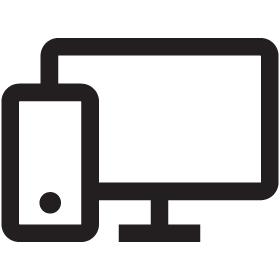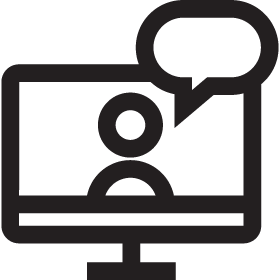
DocuSign and COVID-19
Letter from Dan Springer, CEO
DocuSign’s products enable remote work, so we are in a position to help organizations of all types respond to COVID-19, the disease caused by the 2019 novel coronavirus. We recognize this is a moment to step up, and we are.
We have mobilized to accelerate critical agreements needed for healthcare, emergency government services, education, small business lending, work from home, and doing business remotely. We have thousands of DocuSigners supporting our customers’ COVID-19 needs around the world: sales reps acting as inbound agents for “How can we…” requests, customer-success professionals advising on use-case implementations, product and operations personnel reconfiguring infrastructure to handle unique demand patterns, and marketing team members collecting and communicating what everyone is doing so the learnings are shared.
In the spirit of sharing our learnings, we’ve developed this regularly updated COVID-19 page as a resource. Below, it explains how we’re supporting customers’ responses to COVID-19, organized by industry and business function. The examples are based on actual customer engagements and are meant to be illustrative—we are doing far more than listed here.
So whether you are a customer or not, if you see something below that suggests we can help your organization’s response to the crisis, please get in touch.

P.S. If you are a developer, administrator, or power user, we also have COVID-19 Resources for DocuSign Developers. It has links to relevant templates, support docs, and other technical resources.
Our COVID-19 Activities
Wherever healthcare organizations have called on us, we have prioritized their needs. They are the frontline defenders against COVID-19. We are honored to support them. A few examples:
- Distributing healthcare funding. We are assisting the U.S. Department of Health and Human Services in distributing, as directed by the Department, an initial $30 billion in emergency funding to healthcare providers seeking assistance under the CARES Act.
- Physically distancing the patient-intake process. We are helping hospitals, clinics, and other providers avoid physically circulating paper and clipboards among patients and healthcare workers. Using DocuSign eSignature, patients sign intake forms and consents remotely, ahead of time. For example, a COVID-19 testing center was reduced to putting pens in the sterilizer after each patient’s use; now the center’s intake process is contactless and faster. And, at one of the world’s leading residential substance-abuse treatment centers, every staff member now has access to preconfigured templates for digital forms; completed forms are automatically stored with patients’ records.
- Enabling authorization of telemedicine services. Patients are increasingly opting to see a doctor or other health professional remotely. Using a mobile app or a website, the patient can consult with the doctor via videoconferencing. We are supporting healthcare organizations in their efforts to offer this option. For example, one of the United States’ largest chains of urgent care clinics is using an eSignature PowerForm to allow patients to provide consent to using telemedicine services.
- Remote training for patients’ use of medical devices. We’re helping one of the world’s largest medical-device companies convert in-home training of patients to online video training. For regulatory and safety reasons, patients need to sign-off on the training they’ve received for their new devices, such as for blood-coagulation monitoring. We’re enabling the patient sign-offs upon completion of training.
- Reducing the need for physical sign-offs by medical staff. Within hospitals, signs-offs are required for many activities—for example, bed assignments and treatment changes. We are seeing demand to transition these sign-offs from paper processes to electronic ones, often on mobile devices.
With the above examples, we are not only working to help healthcare providers move quickly but also to support their compliance with regulations like HIPAA that safeguard patient data.
One of the world’s largest cities needed to coordinate suppliers of industrial safety equipment to redirect items like masks and face shields for use in hospitals and health centers. We worked with the city’s technology staff to implement a solution. Suppliers use an eSignature PowerForm to provide the necessary information and to authorize the transaction. As a result, hundreds of thousands of items have already been redistributed.
Another example is from a different large city, which has a quarantine program for infected individuals. The city’s public health agency wanted to maximize compliance by requiring infected people to sign their quarantine orders. For obvious reasons, the city wanted to avoid delivering quarantine orders for signature in-person. We were able to help the city quickly field an eSignature-based solution.
Of course, there is also the problem of delivering normal government services remotely, such as professional licensing. We are helping there too, by establishing or expanding eSignature availability across agency functions.In the United States, the federal government’s Small Business Administration (SBA) is administering bank loans to small businesses through approved lenders. Whereas applying for an SBA loan traditionally involved a visit to a bank, we’re enabling banks—from the largest national banks to local credit unions—to accept SBA loan applications via the internet.
Banks use DocuSign eSignature for electronic signing of the loan application, often in conjunction with DocuSign Identify for extra authentication of the applicant’s identity. Many banks are using DocuSign’s APIs to embed eSignature and Identify functionality into lending portals and workflows.
We were proud to receive this email from the CIO of a regional bank in the western United States:
“What [the bank] was able to build in DocuSign in about 4 days is absolutely amazing and has enabled us to dynamically modify our solution along the way to meet the ever-evolving requirements of the CARES Act SBA Paycheck Protection Loan Program. The DocuSign solution we developed is enabling [us] to process thousands of SBA loan applications and to provide funding for small and medium size businesses to retain their employees, make payroll, pay rent, etc. This is about saving companies and saving jobs – we couldn’t have done it without the amazing capabilities of the DocuSign platform, and great support from [specific DocuSign employees].”
Although many businesses are on hold, others are hiring and onboarding employees to respond to the crisis. Here is a particularly big example: To keep millions of households provisioned with groceries and supplies during the crisis, one of the world’s largest retailers has hired and onboarded more than 100,000 store and online-fulfillment workers. The retailer’s use of DocuSign eSignature has allowed almost all onboarding paperwork to be paperless and executed via the new employee’s own mobile device.
We enabled a similar program for a European country’s national health service, which needed to rapidly onboard thousands of nurses and healthcare assistants in response to the crisis.
In addition to supporting special hiring programs, we are helping companies virtualize their normal hiring and onboarding, so it can be done remotely. We have been helping customers activate our integrations with HCM systems like Workday and SAP SuccessFactors, as well as applicant tracking systems like Greenhouse and Jobvite. Also, for I-9 forms in the United States, we’ve recently enhanced our support for ID verification and storage.
Finally, for examples of organizations using eSignature’s Bulk Send and PowerForms features to support COVID-19-driven needs, see Work from Home.
In response to work-from-home needs, we’ve been supporting wider rollouts of eSignature within organizations, allowing more at-home workers to remotely conduct business that requires signing agreements.
In addition, work from home has brought the need to amend HR and legal policies—for example, about how equipment will be used, time will be tracked, and so on. These amendments can require employees’ signed acknowledgement.
To help such situations, we’ve been training eSignature customers on Bulk Send, a feature that many customers already have in their plans. Bulk Send allows you to upload a list of recipients who will each get a unique, signable version of a document. For example, one of the world’s largest professional-staffing firms is using Bulk Send for HR policy updates. With a single click, the firm can mass-distribute an update to thousands of employees, each of whom can sign electronically from wherever they are, with every required signature tracked for auditing.
Another scenario is supporting employee requests related to working at home. For example, a local government agency needed a way for employees to request and take responsibility for equipment. In response, the agency deployed an eSignature PowerForm. It allows an employee to fill in a form, which generates the necessary document, which in turn the employee can electronically sign. The entire process is self-service.In the United States, there is a particularly urgent need for educators to continue supporting millions of students with disabilities while complying with laws like FERPA, COPPA, the Individuals with Education Disabilities Act, and the Rehabilitation Act. For example, we are helping K-12 educators enable remote signing of IEP (Individualized Education Program) plans by parents, district officials, and external specialists such as psychiatrists, psychologists, and speech/language pathologists.
Here are other examples of how we are helping educational institutions respond to COVID-19:
- Student commitments for independent study
- Forms for student lunch programs, where meals are delivered to shelter-in-place households in need
- Transitioning school HR and business operations to remote work
Nonprofits provide vital services in communities everywhere. Underserved populations are at particular risk from COVID-19, so nonprofits cannot pause their missions. In response, with DocuSign eSignature we are helping nonprofits operate virtually while remaining compliant with funder requirements and government regulations. Here are a few examples:
- Refugee support. We’re supporting a worldwide humanitarian organization’s initiatives to fight the spread of COVID-19 among refugees and internally displaced people. Immigrants needing assistance with housing, food, documentation and family support can sign official documents to file for aid with the help of case workers. In many cases, we can accommodate their native language.
- No-contact lease signing. In one of the world’s largest cities, we are helping a homeless-housing organization enable no-contact lease signing for people’s transition to permanent housing.
- Remote youth mentors. We’re handling the consent waivers for a new internet-based organization that matches college-age mentors with at-risk youth for remote mentoring during COVID-19 shelter-in-place.
- Grantmaking. Allowing nonprofits to apply for emergency grants online is speeding the process of getting help to communities in need.
In addition, we are helping nonprofits’ internal operations adapt to remote work, using eSignature for contracts, employment forms, grant agreements, and a myriad of other day-to-day paperwork for employees and those they serve.
One of the world’s largest insurers accelerated deployment of eSignature to support field agents, who are now working with clients remotely. Working with the office of the Chief Administrative Officer, we helped create new templates for common documents. We also defined DocuSign University self-guided learning paths to get agents trained.
More generally, insurance companies are needing to support remote work across all business functions. In response, we are assisting with expanded eSignature availability and training within organizations.
In many countries, certain financial activities have special regulations. For example, they may be subject to Know Your Customer and Anti-Money Laundering rules. Or for other reasons, they may require special authorization and identification of the parties. In a world of banking without branches, DocuSign is helping banks support these highly regulated financial activities.
A key solution is DocuSign Identify. It provides options for enhanced identification of parties to a transaction, including checking government photo IDs and European eIDs—all done remotely.
For example, in response to COVID-19, we are working with one of the world’s largest banks to digitize its wealth-management and private-banking forms across a large number of countries. These forms are about transfers and beneficiary designations that can be subject to extra regulation for identifying the parties, with specifics varying by country.
Courts of law have often relied on court-ordered paperwork to be done in-person or via other non-electronic means. In the COVID-19 environment, courts are looking for better ways. For example, we are helping a U.S. state’s Department of Child Support Services (DCSS) pilot a program with county courts. It makes available online the most common DCSS-related court forms to electronically fill and sign via eSignature.
In addition, we are working with U.S. federal courts to allow electronic sign-offs on internal court business—for example, clerks’ routing documents for judges’ signatures.
Remote Online Notarization coupled with DocuSign eNotary allows you to get a document notarized from virtually anywhere without face-to-face interactions.
Learn more about how Remote Online Notarization works and if it's available and legal for use in your state.
For the many sales organizations that were already using DocuSign eSignature, the transition to remote selling had one less obstacle. For others, COVID-19 brought new challenges where we could help. As an example, car dealers are now delivering new cars to people sheltered-in-place at home. Whereas before the sales rep would have needed to complete the paperwork with the customer upon delivery, we’ve enabled the signing to be done digitally, remotely, ahead of time. This allows a simple drop-off, either from a car-carrying truck or by a driver following rules for non-contamination.
Many of the organizations using eSignature for remote selling are doing so via our integration with Salesforce. For example, an insurance company has more than a thousand Salesforce-using agents. They normally do business locally, in-person with customers. But given COVID-19, the insurance company has enabled its agents on the combination of Salesforce and DocuSign eSignature, allowing them to close business and assist their customers remotely.
Corporate legal groups are often involved in other business units’ use of DocuSign, such as when Legal needs to approve changes to a sales contract via workflows in DocuSign Negotiate or DocuSign CLM. With COVID-19, legal groups are increasingly adopting these tools and eSignature for their own work, such as bespoke corporate agreements. For example, the legal team for one of the world’s largest tech companies expanded authorization to use eSignature across 50 additional countries.
In addition, we have clients using our contract analytics tool Intelligent Insights to identify COVID-19-related legal risks. The tool uses AI to “understand” legal concepts. For example, it has machine-learning models for many variants of “force majeure,” which means unforeseen circumstances that could prevent a party from fulfilling its contractual obligations. In response to COVID-19, we helped a leading telco analyze thousands of supplier contracts—not simply for force majeure but for variants that specifically referenced pandemics, diseases, and the like.A major research center needed to enroll COVID-19 patients in a clinical trial while minimizing risk of patient-to-staff contamination. We helped enable a solution in which patients use their own phones to discuss the study with the study coordinator. Still on their phones, the patients then use eSignature to sign the consent and enrollment forms.
We’ve also helped a major U.S. blood center start a program using plasma from recovered COVID-19 patients to extract the antibodies for use by vaccine researchers.
In addition, we’re currently working with multiple companies to accelerate compliance with internal and regulatory processes, in the context of social distancing. For example, we’re helping one of the world’s leading biotech companies to drastically reduce the time necessary to validate compliance with the U.S. Food and Drug Administration’s 21 CFR Part 11 regulations.
More generally, pharma and biotech companies are needing to support remote work across all business functions. In response, we are assisting with expanded eSignature availability and training within organizations. For example, to support business continuity amid work-from-home requirements, one of the world's largest pharmaceutical companies has accelerated the global rollout of eSignature and CLM.
Resources to help you get started
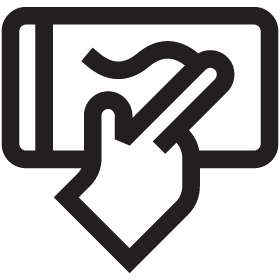
Free 90-day trial
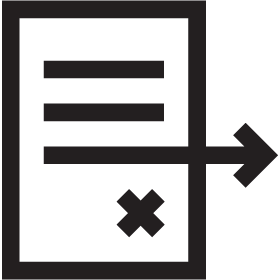
Learn how to send a document for signature
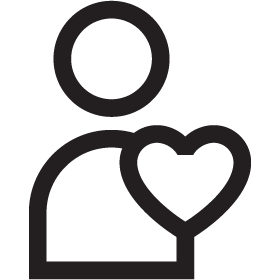
Get started as a DocuSign Admin
